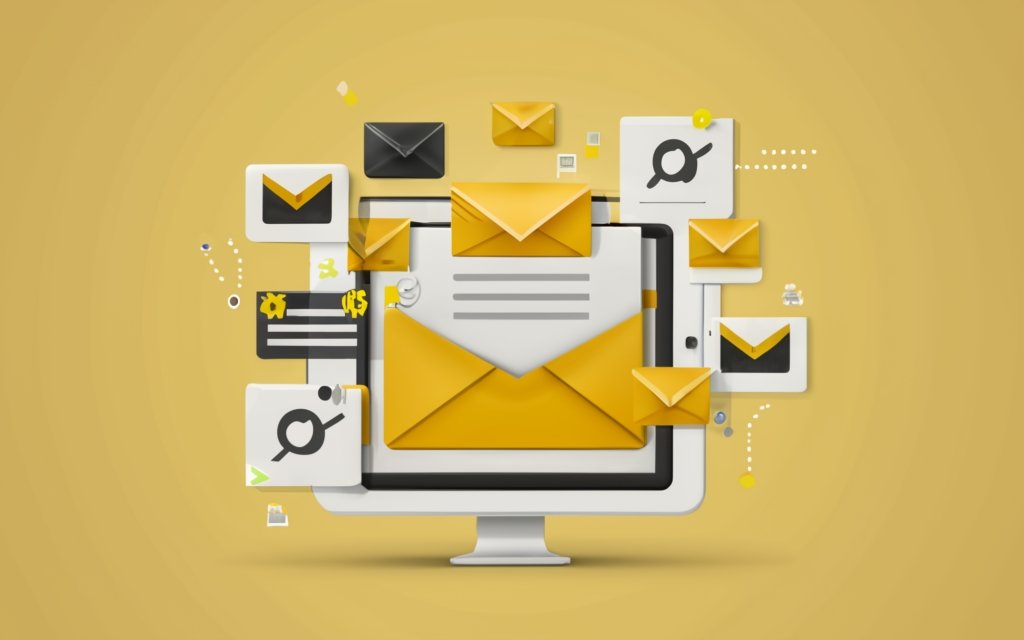Job rejection is an inevitable part of the recruitment process. Crafting a thoughtful and impactful rejection email subject line is essential for maintaining a positive candidate experience and upholding the reputation of the company. When it comes to rejecting candidates, it’s crucial to use the right subject line and email template to convey the message in a respectful and professional manner.
How to Craft an Impactful Rejection Email
When writing a job rejection email, there are several tips to consider in order to ensure that the message is delivered with empathy and clarity. Firstly, the subject line plays a crucial role in capturing the candidate’s attention. It should be relevant and concise, indicating that the email pertains to a job rejection. Additionally, using a well-crafted email template can provide a structured format for conveying the rejection message while maintaining a professional tone.
Tips for Writing a Job Rejection Email
It’s important to personalize the email by addressing the candidate by name and including the specific job title and company name. This demonstrates that the rejection email is not generic and has been tailored to the candidate and their application. Furthermore, providing specific feedback on why the candidate was not selected can offer valuable insights for their future job search and improve their overall candidate experience.
Thank You for Your Application Email Template
Expressing gratitude to the candidate for their application, even though it ultimately resulted in a rejection, is a considerate gesture. A well-structured email template can help convey appreciation for the candidate’s interest in the position and the company, despite the outcome.
Job Rejection Email Subject Line Examples
Here are a few examples of effective subject lines for job rejection emails:
- “Regarding Your Job Application”
- “Update on Your Application”
- “Application Status: [Job Title]”
The Importance of a Thoughtful Rejection Letter
A candidate rejection email holds significant importance in the recruitment process. It reflects the professionalism and empathy of the company towards job seekers, contributing to a positive candidate experience. Crafting a thoughtful rejection email can leave a lasting impression on the candidate, even if it’s not the outcome they hoped for.
Why a Candidate Rejection Email Matters
A well-crafted rejection email demonstrates that the company values each candidate and their time and effort spent on the application process. It conveys a message of respect and consideration, which is essential for maintaining a positive reputation and attracting potential future candidates.
Making the Rejection Email Personal
Personalizing the rejection email by addressing the candidate by name and providing specific feedback on their application demonstrates a level of care and consideration, which can positively impact the candidate’s experience, even in the face of rejection.
Job Rejection Email Examples and Templates
Utilizing pre-existing email templates for job rejection can help streamline the process while ensuring that the message is conveyed in a professional and empathetic manner. An effective template can provide a structure for including specific feedback and expressing gratitude to the candidate for their application.
Best Practices in Recruitment and Rejection
Establishing best practices for both recruitment and the rejection process is essential for fostering a positive candidate experience and maintaining a strong employer brand. The recruitment process should incorporate respectful and considerate communication, even in the face of rejection.
Recruitment Process and Rejection Email
Integrating a well-defined rejection email template into the recruitment process ensures that candidates are treated with respect and professionalism, regardless of the outcome. This can contribute to a positive candidate experience, whether the individual is ultimately selected or not.
Handling Rejection in the Interview Process
During the interview process, it’s important to convey rejection in a manner that upholds the candidate’s dignity and respects the significant amount of time and effort they have invested. Using a structured email template can assist in delivering the message with empathy and clarity.
Rejection Email for Job Applicants Who Didn’t Make the Cut
Addressing applicants who didn’t make the cut with a well-crafted rejection email can uphold the company’s professionalism and contribute to a positive candidate experience. Even in the face of rejection, job applicants should feel respected and valued throughout the process.
Maintaining a Positive Relationship with Rejected Candidates
Thanking the candidate in the rejection email and expressing best wishes for their future endeavors is vital for maintaining a positive relationship and leaving a favorable impression. Although the current application may not have been successful, fostering goodwill with rejected candidates can benefit the company’s reputation in the long run.
Thanking the Candidate in the Rejection Email
Expressing gratitude to the candidate for their time and interest in the position, despite the outcome, reflects the company’s appreciation for their efforts and maintains a level of respect for the individual and their application.
Wishing the Candidate All the Best for Future Openings
Conveying best wishes to the candidate for their future job search and expressing openness to considering their application for future openings can leave a positive and lasting impression. It demonstrates that the company values the candidate and their potential for future roles.
Rejection Email for a Good Fit Applicant
Even when rejecting a candidate who was a good fit for the position, it’s essential to maintain a positive and respectful communication. A well-crafted rejection email can convey appreciation for the candidate’s qualifications while expressing the company’s decision to move forward with a different candidate.
Handling Multiple Applications from the Same Candidate
When an applicant submits multiple applications, each rejection email should be personalized and considerate, reflecting the company’s respect for the candidate’s continued interest and efforts in applying for different positions.
Rejection Email for Multiple Applications from One Candidate
Addressing the applicant’s multiple applications in the rejection email and expressing appreciation for their ongoing interest in the company’s opportunities can maintain a positive relationship and leave room for potential consideration in the future.
Addressing the Applicant by Name in the Rejection Email
Personalizing each rejection email by addressing the applicant by name demonstrates a level of respect and consideration, ensuring that the candidate feels valued and appreciated, despite the outcome.
Responding to Another Application from the Same Candidate
In the event of another application from the same candidate, the rejection email should maintain a respectful and professional tone, acknowledging the candidate’s continued interest while conveying the decision to move forward with other candidates for the current position.
###
Q: What are some effective subject line templates for a job rejection email?
A: “Thank you for applying,” “Regarding your application,” “Update on your application,” “We appreciate your interest,” “Application status update,” “Important update on your application,” “Regarding your recent application,” “Applicant update,” “Job application status,” “Notification regarding your application.”
Q: How do I craft a job rejection email using a template?
A: Start with a polite greeting, express appreciation for the candidate’s time and interest, provide the news of non-selection, offer encouragement, and close with a professional sign-off. You can use a template as a starting point and personalize it for each candidate.
Q: Can I use a job rejection email template for more than two job candidates?
A: Yes, you can use the same template for multiple candidates. However, it’s important to customize the email for each candidate, addressing them by name and mentioning specific reasons for their non-selection if possible.
Q: What should I include in a job rejection email to make it more personalized?
A: You can personalize a job rejection email by addressing the candidate by name, mentioning specific strengths or traits that stood out, and offering encouragement for their future endeavors. Including specific feedback or reasons for non-selection can also enhance the personalization.
Q: Is it a good idea to use the applicant’s name in the subject line of a rejection email?
A: Using the applicant’s name in the subject line can add a personal touch to the email, showing the candidate that their application is being acknowledged and respected. It can make the email feel more personalized and less generic.
Q: How should I handle rejection emails for candidates who didn’t make it to the final stage of the hiring process?
A: Even for candidates who didn’t reach the final stage, it’s important to maintain a professional and respectful tone in the rejection email. Express gratitude for their interest, offer a polite explanation, and encourage them to apply for future opportunities.
Q: Should I provide specifics on why the candidate was not chosen in a rejection email?
A: While it’s not always feasible, providing specific feedback can be valuable for candidates. If possible, consider offering constructive feedback on areas for improvement or expressing admiration for their qualifications, even if they weren’t the perfect fit for your company – and send it in rejection email subject line.
Q: Is it necessary to send a personalized rejection letter to every candidate who applied for the job?
A: While it may not always be realistic for high-volume recruiting efforts, personalized rejection letters can leave a positive impression on candidates. It shows respect for their time and effort in applying and leaves the door open for potential future interactions.
Q: How should I tell the candidate who received the job offer that they were chosen over other candidates?
A: When informing a candidate that they’ve been selected, express congratulations and enthusiasm for their joining the team. While you can acknowledge the competition, focus on highlighting their strengths and fit for the role rather than comparing them to other candidates.
Q: If a candidate is a good fit for a different job in the future, what’s the best way to handle the rejection email?
A: If you see potential in a candidate for a different role down the line, express this in the rejection email. Encourage them to apply for future positions and consider mentioning the specific qualities that make them a good fit for the company, even if it’s not for the current role.
Expert opinion on Rejection email subject line
As an expert in professional communication, particularly in the HR and recruitment sector, I’d like to offer an opinion on the nuanced art of crafting candidate rejection emails. This aspect of the recruitment process, often overlooked, plays a critical role in maintaining a company’s reputation and can significantly impact a candidate’s perception of the organization.
A rejection email, while delivering unfavorable news, is an opportunity to demonstrate the company’s values and professionalism. It’s essential to strike a balance between empathy and clarity. The email should convey respect for the effort the candidate has put into their application and interview process. A simple acknowledgment, such as “We really appreciate the time and energy you invested in your application and interview,” can leave a positive impression.
Timing is another critical factor. Sending the rejection email promptly, ideally within a week or two after the decision has been made, shows respect for the candidate’s time and anxiety during the job search. Delayed responses can add to the candidate’s stress and may reflect poorly on the company’s communication practices.
The structure and content of the rejection email are equally important. A good practice is to start with a thank you note, acknowledging the candidate’s interest in the company and the position. The next step is to be straightforward yet tactful in delivering the news. Phrases like “We’ve decided to go with another candidate” or “We won’t be moving forward with your application” are direct yet respectful. It’s also a good idea to end the email on a positive note, perhaps by encouraging the candidate to apply for future positions or wishing them the best in their job search.
Personalization in the email can significantly enhance its impact. Referring to the candidate by name and, if possible, mentioning a specific aspect of their application or interview can show that the decision was thoughtful and not arbitrary. However, it’s crucial to avoid any language that could be construed as discriminatory or that provides false hope.
In terms of legal considerations, it’s important to ensure that the rejection email is free from any language that could imply unlawful discrimination. The email should be professional, courteous, and neutral, focusing solely on the candidate’s fit for the specific role they applied for.
In conclusion, a well-crafted rejection email is a powerful tool in the recruitment process. It not only conveys the necessary information but also upholds the company’s image and can even enhance its employer brand. The key is to be prompt, respectful, and clear, ensuring that the candidate feels valued, despite the rejection. This approach not only benefits the candidates but also contributes positively to the company’s reputation in the long run.




